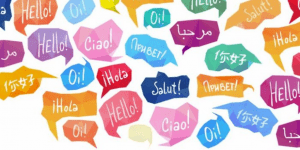‘Woke’ activists have been telling us to ‘wake up’ for the past two years: Wake up to issues of discrimination concerning gender, sexual orientation (LGBT) and race. Meanwhile, the ‘‘cancel culture’ has been censoring alternative opinions to those of ‘woke’. Orwellian thought police lurk. Until the Covid-19 crisis the subject of ‘woke’ had been head-line news with U.S. university professors being hounded out of office for their traditional use of gender terms, a recent college chaplain chastised for encouraging freedom of speech with respect to competing identity politics to those of ‘woke’, and an analytical psychiatrist (Jordan Peterson) spot-lighted on TV interviews and chat shows for reporting on gender-related statistical data. Sensitive issues? Yes. More so since the murder in America of George Floyd, which triggered the BLM (Black Lives Matter) movement. Time to ‘wake up’, or have we been awake for a long time?
“It was the best of times, it was the worst of times”. So begins ‘A Tale of Two Cities’ by Charles Dickens. “The spring of hope”, he adds. Hope that the enlightenment would bring enormous benefits to humanity with science and technology. ”The winter of despair”, he continues, as the evils of the French Revolution surfaced. And equally, just as the industrial revolution was seen as dawning a new ‘Golden Age’, it was also a harbinger of hell: Slavery, appaling health, housing and working conditions with filthy, rat-infested slums, child-labour and families thrown into abject poverty. over-crowded prisons shipping off inmates by the thousands to the colonies, and the pillaging of the wealth of nations, including the massacres of those nations’ indigenes.
Out of this murky cauldron of utopian ideals and dystopian nightmares arose the Victorian social reformers. Early on, philosopher Jeremy Bentham argued for equal rights and more humane social policies, followed by John Stewart Mill in politically championing liberty and equality. Thomas Paine (author of ‘The Rights of Man”), after witnessing first-hand both the American and French revolutions, influenced the writings of the American Bill of Rights and the French constitution with its maxim: “Liberté, Egalité, Fraternité”. Karl Marx, who began his intellectual career by arguing for the rights of German forestry workers before calling for a global workers revolution, should certainly receive a mention.
Then there was factory owner Robert Owen, with his focus on maintaining healthy, well-housed workers whose children received education; an idea taken up by John Cadbury and Joseph Rowntree in building ‘co-operative workers villages’ for their chocolate factory workers. Similar ideals were established by art critic John Ruskin, whose socialist ideals led him to founding educational institutions for both male and female workers. The tide of social reform swept along bringing into the fray slavery abolitionist William Wilberforce, hospital reformer Florence Nightingale, and the founder of the womens’ suffragettes movement, Emily Pankhurst – whose American counter-party, Elizabeth Cady Stanton, pioneered womens’ rights across the pond.
Also in America, the founders of cultural anthropology, Henry Schoolcraft and Lewis Henry Morgan, promoted racial tolerance towards the indigenous native American Indians who had been severely mistreated in the colonization of their lands. Further afield in South East Asia,to give a global perspective, fighting for social reform in education, female emancipation, and the abolition of sati were Raja Ram Mohan Roy and Ishwar Chandra Vidyasagar. Social reform was occurring worldwide.
The list is long and in the U.K. it stretches a lot further back, through the 17th century days of Diggers and Levellers, through Magna Carta, and onwards beyond. Forwards, it extends into the 20th century civil rights movements. These acquired momentum as the decades passed resulting in trade unions (UK: 1926), women’s suffrage (UK:1928), the Universal Declaration of Human Rights (1948), the Welfare State (UK: 1948), the shaking off of the colonial mantle as commonwealth countries gained independence, and emancipation as South Africa emerged from the disgrace of aparteid. The listing here is simply to illustrate that the world has been actively ‘woke’ for a long time, with many positive, humanistic outcomes already achieved. Simply put: The trail-blazing fire of each new generation burns on the cinders of the last.
Striving to eliminate discrimination, when directed towards any social grouping, became a central concern of social reform as the 20th century progressed. As the 21st arrived, transgenderism also came under its umbrella. All well and good. The last vestiges of discriminated victims are finally receiving their recognition and (over) dues – if transgenderism fits that mould? But is it – ‘all well and good’? In the media and on-line forums there is a question of doubt; even concern. Certainly, discrimination of any form needs to be spoken out against. But at some point, as is frequently critiqued of ‘woke’, censoring others’ ideas and opinions conflicts with freedoms of speech. Therein lies the polemic. Do we censor certain opinions (i.e. ‘cancel culture’) purely because we find them offensive, or do we ignore those ‘other’ opinions and let them ride by not mounting our high horses?
Within the world of ELT we promote discussion and debate. This, we believe, encourages second language development. We also strive to have good classroom ‘vibes’, in order to reduce anxieties and affective filters, and so aid free expression which enhances the learning process. That’s the theory, anyway. We may add our own opinions, when appropriate, but we do not censor others. Our role as language educators is not to impose particular viewpoints, as some more dictatorial states are prone to do with their institutional students. But certainly, there is a line between the extremes of hate speech and dumbed-down speech in which students are fearful of expressing and exploring their ideas in a second language. Where that line lies, we teachers may have a say. Indeed, we should have a say. Classroom management is our job and responsibility.
ELT classrooms are virtual realities. Discussions and role-plays straddle the divide between ‘make believe’ and ‘believe’. Through language and communication thoughts are created, played with, and moulded. Language and thought can not be separated. Teachers facilitate the development of expression and grammatical precision, but should not dictate beliefs and opinions. Neither should students. Such is my personal opinion.
On the other hand, English language teachers are justified in taking stances. Everyone has a right to raise their voice and stand up for what they believe in. English language teaching has had a long, dubious pedigree ranging from an ethic of civilising barbaric natives to undercover, colonial, British empire expanding ‘cultural diplomacy’. English languageteaching has been intrinsically involved in all the processes of modernisation, industrialisation, globalisation. The profession is as wedded to political philosophy as language is wedded to thought. We, English language teachers, are actors in this play. Actors, who have as much ‘right’ to present personal views as anyone else, with lesson content and direction being very much in our hands. But we do not ‘cancel’ and nor do we censor. Not unless lines are well-and-truly crossed. Previously, teachers followed politically neutral general English pedagogical materials and business English materials that reflected the competitive market place of the times. Now, with the internet, materials are limitless and teaching practice is unrestrained. In fact, zero materials, for many, is the pedagogical Holy Grail. Lesson content flows every which way.
Taking a professional back-seat, in group discussion, has important pedagogical value. ‘Allowing’ debates to organically evolve without our explicit input, is part of our classroom management tool-kit. ‘Cancelling’ opinions, in our ‘virtual reality’ classrooms, only reduces the freedom to engage in free speech and thereby develop second language skills. Pro-actively proselytizing ‘woke’ is also an act of free speech: An act upon which various opinions can be offered. Offered, that is, without being cancelled.
The same holds true for the ELT on-line forums. Freedom of speech is a ‘right of man’ – and woman – and whatever gender students and/or teachers associate with. Cancelling freedom of speech is a rejection of democracy. Social reformers have fought long and hard for democratic freedoms. Now is not the time to reject them. It is never the time.




